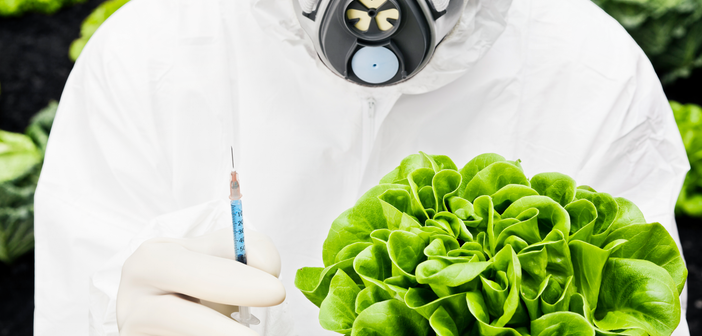Russia, GMO and the Geopolitics of Organic
What is written in this article is exactly true. Russia has made a wise choice just as I thought. I think we might come to think that products in Russia are safe to eat.
I think the strategy of Monsanto is to
allow some of privileged people to hold a life or death authority over humans
by having each country renounce their sovereignty at the food level so that
they can freely control population.
There is no doubt that Chem-Trail is used as such technology. Then, who took the initiative in carrying out
such acts that are considered as nothing but blasphemy against global
environment and divine will? Based on
information from various quarters, it has been made clear that the Society of
Jesus plays a central part. Since many
years ago, I have often said with certainty in Shanti-phula’s blog that the
central figure of such evildoers is a man who used to be known as Jesus.
Masatoshi
Takeshita
May
17, 2014
Excerpt from a Japanese article: OverseasArticles Uncovered in Mass Media – May 17, 2014 –
Russia, GMO and the Geopolitics of Organic
Source:
Russia’s
RT reported in an article titled, “Russia will not import GMO products – PM
Medvedev,”
that, “Russia will not import GMO products, the
country’s Prime Minister Dmitry Medvedev said,
adding that the nation has enough space and resources
to produce organic food.” ……….
The
article would also state that products in Russia
containing more than 0.9% genetically modified ingredients must be labeled,
as opposed to US laws where no labeling is required for genetically modified
products despite steadily growing public opposition to the practice.
……………….. The backlash against GMO has widespread
appeal due to well-placed health and environmental concerns among increasingly
informed populations. But the drive to push back against GMO in nations like
Russia and China also has a geopolitical dimension.
An Army Marches on Its Stomach
The biotechnology from which genetically modified organisms are
derived, is currently monopolized by a handful of very
powerful multinational corporations centered in the West. This monopoly forms
(in part) the foundation of Western hegemonic power. As seen in
Afghanistan, big-ag monopolies like Monsanto played a pivotal role in the attempted corporate
colonization of the South Asian nation. Corporate interests and technology, coupled
with Western aid organizations, backed by NATO’s military force, helped
transform Afghanistan’s agricultural landscape through the systematic poisoning
of traditional crops and their replacement with genetically modified soybeans
(a crop previously alien to Afghan agriculture and cuisine).
The
roots Monsanto sank into Afghanistan will be deep and lasting. Farmers dependent on patented genetically modified soybeans
will be dependent on Monsanto and other Western biotech/big-ag giants
indefinitely, and in turn, so will the people who depend on those
farmers for daily sustenance. The very sovereignty of
Afghanistan as an independent nation has been undermined at the most basic and
fundamental level, its food security which now resides in the hands of
foreigners.
It is clear then that nations like Russia, China, and others are not only responding to
growing concern from among their populations regarding the safety and environmental
impact of GMO products, but the threat this monopolized
technology poses toward each respective nation’s food supply and consequently, their sovereignty.
Organic farming augmented by
modern technology, as suggested by Prime Minister Medvedev has the power to ensure food security for Russia now and well
into the future. With growing global demand for healthier, GMO-free food, a
national policy leaning toward organic could eventually become an economic
advantage beyond Russia’s borders. Other nations, communities, and
indeed individuals around the world should look at this basic first step,
securing one’s food supply, and understand how it is the key to national,
local, and individual sovereignty, as well as a means toward enhancing economic
prospects.
The West’s mega agricultural monopolies seek to infiltrate and overrun
national food supplies worldwide,
while it aims crippling sanctions at nations it
seeks to influence or control geopolitically. A nation made dependent on the
West’s mega agricultural monopolies, if ever targeted by sanctions or other
means to undermine and overthrow its existing political order, will be
particularly vulnerable. Thus, going organic is not just a means to keep a
nation’s population healthy and therefore more productive, but also a
fundamental means to protect national sovereignty.
The shortsighted benefits in terms of payoffs from mega agricultural
monopolies governments
around the world may be tempted by today, might be the
leverage used by the West tomorrow to uproot them when their utility is
perceived by the West to be exhausted, and new leadership is desired.
For nations that believe in the merits of GMO, their people
should demand that such technology be developed, implemented, regulated, and
monitored indigenously, preempting the multitude of dangers the foreign
domination of their food supply poses.
